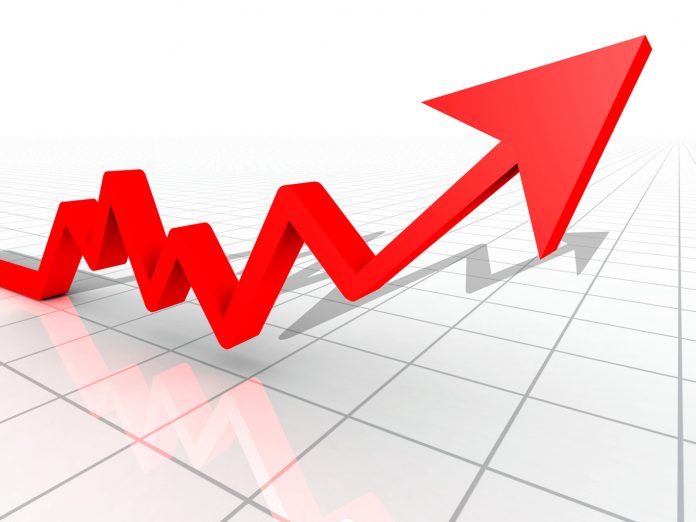This blame came on the heels of the October 2023 inflation rate released yesterday by the National Bureau of Statistics (NBS), which shows that the inflation rate has increased to 27.33 percent from the 26.72 percent recorded in September.
The report shows that on a year-on-year basis, the inflation rate increased by 6.24 percent over the 21.09 percent it was in October 2022.
NBS also reports that Food inflation rate in October 2023 was 31.52 percent on a year-on-year basis, which was 7.80 percent points higher compared to the rate recorded in October 2022 (23.72 percent).
The rise in Food inflation on a year-on-year basis, it said was caused by increases in prices of Bread and cereals, Oil and fat, Potatoes, Yam and other Tubers, Fish, Fruit, Meat, Vegetables and Milk, Cheese and Eggs.
In its recent forecast for the year, KPMG predicted that Nigeria’s headline inflation may rise to 30 percent by December 2023 because of fuel subsidy removal and the unification of the foreign exchange market.
Following the sharp rise in the cost of living after the removal of fuel subsidy, the federal government came up with some palliative measures to cushion the effect of the removal, part of which includes the release of N5 billion to each of the 36 states and the FCT to purchase food stuff for distribution to the citizens.
However, six months down the line, the effect of the palliatives has yet to be felt by the citizens.
Mr. Eze Onyekpere, an economic analyst in an interview said the money that was disbursed to the states was not tied to any result framework. “Remember there was a national social register which they said had issues, we had expected that they would review and strengthen it, but nothing has happened,” he said.
“Secondly you know we are importing quite a number of food items and with the free floating of the naira and the high dollar price, we have import inflation.”
He said that food inflation is high because the food Nigeria is producing is not enough because of insecurity which has chased farmers out of their farms.
He noted that what the Central Bank of Nigeria (CBN), is doing in terms of tackling inflation is ineffective because they are looking at the symptoms.
According to him, “What we should do is ensure there’s enough security across the country, especially in the food producing states so that farmers can go to their farms without being kidnapped or killed.
“The money they are budgeting for agriculture should be tied to specific projects that can be monitored. If you look at the supplementary budget, it gives about N11.7 billion per geopolitical zone for dry season farming and there is another one for seeds and infrastructure. This has been going on for years, no accountability, they are not tied to any result.
“Let the budget for agriculture be targeted at actual farmers, the small holder farmers that produce over 70 percent of the food we eat.”
He also advised that the President and his team need to sit down and task the ministers and the committees that they have set up to come forward with their recommendations. “You can’t have a cabinet of 48 ministers and everybody is helpless. They should come up with solutions instead of the president running around begging for money,” Onyekpere said.
On his part, Professor Godwin Oyedokun of Lead City University, Ibadan said the inflation will not come down if the government continues doing the same thing they are doing.
According to him, “We are not producing, and as long as we depend on importation with the high exchange rate, there’s no way inflation will not continue to rise, I think we are just not ready to control inflation.”
He said that the energy cost alone which has made transportation very expensive, is enough to have the inflation hitting the roof. As he puts it, “You don’t expect a trader to spend so much transporting his goods to the market not to add the cost of transportation to the price. If we are serious about bringing down inflation, the government policies will change and the focus will be encouraging production and not consumption. “
Also reacting to the high food inflation, National President, All Farmers Association of Nigeria (AFAN), Arc. Kabir Ibrahim said at a time like this when harvesting is going on, food prices usually decline, but the trend changed in the last six years due to many factors including, the CBN intervention in the form of Anchor Borrower Programme (ABP).
He said the activities of Prime Anchors sabotaged the programme. According to him, “These Prime Anchors get large sums of money principally to finance a critical mass of smallholder farmers (SHFs) who should serve as out-growers, producing what the prime anchors would directly off take, but instead opt to go to the market to buy in order to pay back the loan instead of making the SHFs they identified in the first place as their out-growers.”
He said this is against the principle of guaranteed minimum price (GMP) which clearly prohibits buying by government or any quasi-government organization when there is inflation because such action simply exacerbates it (inflation).
“This is the principal reason for this trend in Nigeria today,” he said.
“Again, the purchasing power of the Naira also contributes to the hike in prices because the high prices of inputs, labour and transport are clear threat factors to price stability.”


